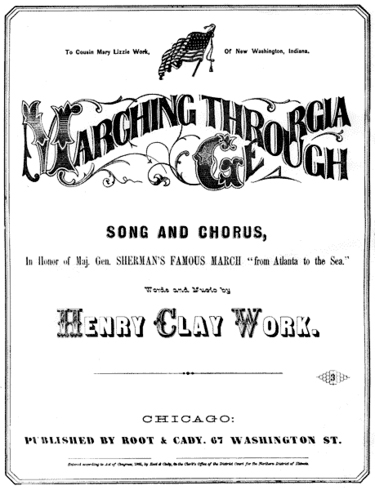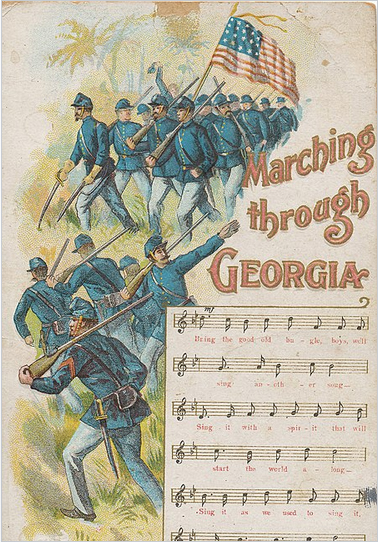„Marching Through Georgia“
Written by Henry Clay Work, *1832, †1884, at the end of the American Civil War in 1865. The title and lyrics of the song refer to U.S. Army major general William T. Sherman's March to the Sea to capture the Confederate city of Savannah, Georgia in late 1864. The song became widely popular with Union Army veterans after the American Civil War. The song, sung from the point of view of a Union soldier, tells of marching through Georgian territory, freeing slaves, meeting Southern Unionist men glad to once again see the U.S. flag, and punishing the Confederacy for their starting the war. After the war, in parts of the southern United States, and particularly in Georgia, ex-Confederates and some white Southerners saw the song as a symbol of perceived excessive damage and political domination the United States army and government exercised over the former Confederacy and Southern states during the war. Coincidentally, Sherman himself came to dislike Marching Through Georgia, in part because it was played at almost every public appearance that he attended. Outside of the Southern United States, it had a widespread appeal:
https://en.wikipedia.org/wiki/Marching_Through_Georgia
|

